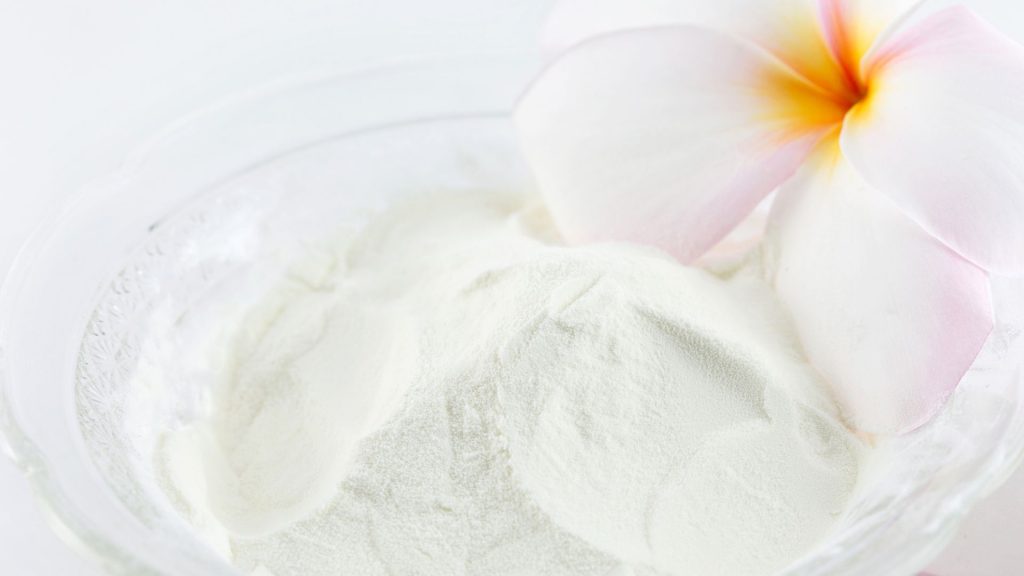Have you ever wondered if your favorite dairy beverage could help boost your collagen levels? It’s a well-known fact that collagen is essential for maintaining healthy skin, hair, nails, and joints, and many people turn to supplements or special foods to increase their intake. But what about milk?
After all, milk is often praised as a nutrient-rich beverage that’s good for our bones and muscles. So, does milk contain collagen? In this article, we’ll explore the scientific evidence to determine whether milk can help us achieve our collagen goals. Let’s dive in!
What Is Collagen?

Collagen is a protein that is essential for our body’s structural support, including our skin, bones, and joints. It is the most abundant protein in our bodies, accounting for about one-third of the total protein content.
Collagen is made up of amino acids, including glycine, proline, and hydroxyproline. These amino acids are critical for the production of collagen, which provides structure and elasticity to our skin and other tissues.
The benefits of collagen are vast and varied. It can help to improve skin health by reducing wrinkles, increasing hydration, and improving elasticity (as previously mentioned).
Collagen is also known to improve hair and nail growth and strength, making it a popular ingredient in many beauty products. Additionally, collagen is essential for joint health, as it helps to protect and cushion our bones and cartilage. This is particularly important for older adults or those with joint problems.
One of the most significant benefits of collagen consumption is its potential to reduce inflammation. Inflammation is a natural response of the body to injury or infection. Still, when it becomes chronic, it can lead to a host of health problems, including heart disease, diabetes, and cancer.
Collagen can help to reduce inflammation by reducing the production of inflammatory cytokines, which are molecules that promote inflammation in the body.
There are many natural sources of collagen, including bone broth, fish, and egg whites. However, many people turn to supplements to increase their collagen intake. These supplements are typically made from animal sources, such as cows or fish, and can come in various forms, including powders, pills, and liquids.
In recent years, there has been much debate over the argument, “does milk contain collagen?”.
Milk’s Connection to Collagen

While milk does contain proteins that are similar in structure to collagen, such as casein and whey, it does not contain collagen itself.
However, some studies have suggested that consuming milk can stimulate the body’s production of collagen. This is because milk contains certain amino acids, such as proline and glycine, which are critical for collagen production.
Pretty much collagen is a vital protein that provides structure and support to our bodies. It is essential for maintaining healthy skin, hair, nails, and joints and can help to reduce inflammation.
While milk does not contain collagen itself, it can still be a valuable source of nutrients that promote collagen production. If you’re looking to increase your collagen intake, consider incorporating natural sources like bone broth or fish into your diet, or try taking collagen supplements.
Disadvantages of Collagen Consumption

While collagen supplements have gained popularity in recent years due to their potential health benefits, there are also some potential disadvantages to consider:
- Digestive issues: Collagen supplements are often derived from animal sources, such as bovine or fish, and some people may experience digestive issues such as bloating, gas, or diarrhea as a result of taking these supplements.
- Allergic reactions: Some individuals may be allergic to collagen supplements, particularly those derived from animal sources. Allergic reactions can range from mild to severe and may include symptoms such as itching, hives, swelling, or difficulty breathing.
- Cost: Collagen supplements can be relatively expensive and may not be covered by health insurance. This can make them difficult to afford for some individuals who may benefit from them.
- Lack of scientific evidence: While some evidence suggests that collagen supplements may have health benefits, much of the research on this topic is still preliminary. More research is needed to fully understand the potential benefits and risks of collagen supplementation.
- Ethical concerns: Collagen supplements are often derived from animal sources, which can raise ethical concerns for some individuals. Additionally, some collagen supplements may be produced using unsustainable practices, which can negatively impact the environment.
Benefits of Collagen Consumption

Collagen is a protein that is naturally found in our bodies, and it provides structural support for various tissues such as skin, bones, and cartilage. Collagen can provide these benefits:
- Skin health: Collagen is a major component of the skin, and taking collagen supplements may help improve skin elasticity, hydration, and overall appearance. Some research suggests that collagen supplements may also help reduce the appearance of wrinkles and fine lines.
- Joint health: Collagen is an important component of cartilage, a type of connective tissue that helps cushion and protect joints. Some studies have found that collagen supplements may help improve joint pain and mobility in individuals with osteoarthritis.
- Bone health: Collagen is also a major component of bone tissue, and taking collagen supplements may help improve bone density and reduce the risk of fractures in postmenopausal women.
- Muscle mass: Collagen plays a role in muscle mass and strength, and some research suggests that collagen supplements may help improve muscle mass in older adults.
- Gut health: Collagen contains certain amino acids that may help improve gut health and reduce inflammation in the digestive tract. Some studies have found that collagen supplements may help improve symptoms of conditions such as irritable bowel syndrome (IBS) and leaky gut syndrome.
Milk Nutritional Information

Milk is a highly nutritious beverage that is widely consumed around the world. It contains a range of essential nutrients that are important for maintaining good health, including proteins, carbohydrates, fats, vitamins, and minerals.
The specific nutritional content of milk can vary depending on the type of milk, the animal it comes from, and the processing methods used.
Milk is a rich source of high-quality proteins that are essential for the growth, development, and repair of the body’s tissues. The two main types of proteins found in milk are casein and whey. Casein accounts for about 80% of the protein content in milk, while whey makes up the remaining 20%.
Both casein and whey are complete proteins, meaning that they contain all nine essential amino acids that the body cannot produce on its own.
Collagen is a type of protein that is essential for maintaining the health and elasticity of our skin, bones, and joints. While milk does not contain collagen directly, it is a rich source of the amino acids that make up collagen, such as glycine, proline, and hydroxyproline.
Other natural sources of collagen include bone broth, fish, chicken, and beef. However, milk is a more accessible and convenient source of these amino acids for many people, especially those who follow a vegetarian or vegan diet.
Reliable Collagen Sources

While our body can produce collagen on its own, the production of collagen declines as we age, leading to various health issues. Therefore, it is important to consume foods that are rich in collagen or the nutrients that help support collagen production. In this article, we will discuss some of the best sources of collagen that you can include in your diet.
- Bone Broth: Bone broth is a nutrient-dense broth made by simmering animal bones, such as chicken, beef, or fish, in water for several hours. It is a rich source of collagen, as well as other essential amino acids, minerals, and nutrients. The collagen in bone broth comes from the bones and connective tissues of the animal, which are broken down during the cooking process. Drinking bone broth regularly can help improve joint health, reduce inflammation, and support healthy skin, hair, and nails.
- Fish: Fish is a great source of collagen, especially the skin, and bones of fatty fish like salmon, tuna, and sardines. These parts of the fish are rich in collagen peptides, which are easily absorbed by the body and used to support collagen production. In addition, fish is also rich in omega-3 fatty acids, which are essential for maintaining healthy skin, reducing inflammation, and improving brain function.
- Chicken: Chicken is another great source of collagen, especially the connective tissues and skin of the bird. Chicken collagen is easily absorbed by the body and used to support the growth and repair of collagen in our tissues. In addition, chicken is also a good source of protein, vitamins, and minerals, making it a healthy and nutritious food choice.
- Beef: Beef is a rich source of collagen, especially in the connective tissues and bones of the animal. Beef collagen is easily absorbed by the body and used to support the growth and repair of collagen in our tissues. In addition, beef is a good source of protein, iron, zinc, and other essential nutrients, making it a healthy and nutritious food choice.
- Eggs: Eggs are a great source of collagen-building amino acids, such as proline and glycine. These amino acids are essential for producing collagen in the body and can help improve skin elasticity, reduce inflammation, and support healthy joints. In addition, eggs are also a good source of protein, vitamins, and minerals, making them a healthy and nutritious food choice.
- Leafy Greens: Leafy greens, such as kale, spinach, and collard greens, are a rich source of vitamin C, which is essential for collagen production in the body. Vitamin C plays a key role in the synthesis of collagen and can help improve skin elasticity, reduce wrinkles, and support healthy joints. In addition, leafy greens are a good source of other essential nutrients, such as iron, calcium, and magnesium.
- Citrus Fruits: Citrus fruits, such as oranges, lemons, and grapefruits, are a rich source of vitamin C, which is essential for collagen production in the body. In addition, citrus fruits are also a good source of other essential nutrients, such as fiber, folate, and potassium.
Final Thoughts

In conclusion, the question of whether milk contains collagen has been thoroughly explored. While milk does not contain collagen itself, it can still provide important nutrients that promote collagen production in the body.
Collagen is a crucial protein that plays a vital role in maintaining healthy skin, hair, nails, and joints and reducing inflammation.
By incorporating natural sources of collagen like bone broth and fish or taking collagen supplements, individuals can increase their collagen intake and potentially reap its many benefits.
It is important to note that further research is needed to fully understand the effects of collagen consumption on human health, as well as the potential benefits of milk consumption for collagen production. However, the current evidence suggests that collagen is a valuable nutrient that should not be overlooked in our pursuit of optimal health and wellness.
Pretty much whether you’re looking to improve your skin’s appearance, protect your joints, or reduce inflammation, collagen is an essential component of a healthy lifestyle. So why not add a little collagen to your diet today?
